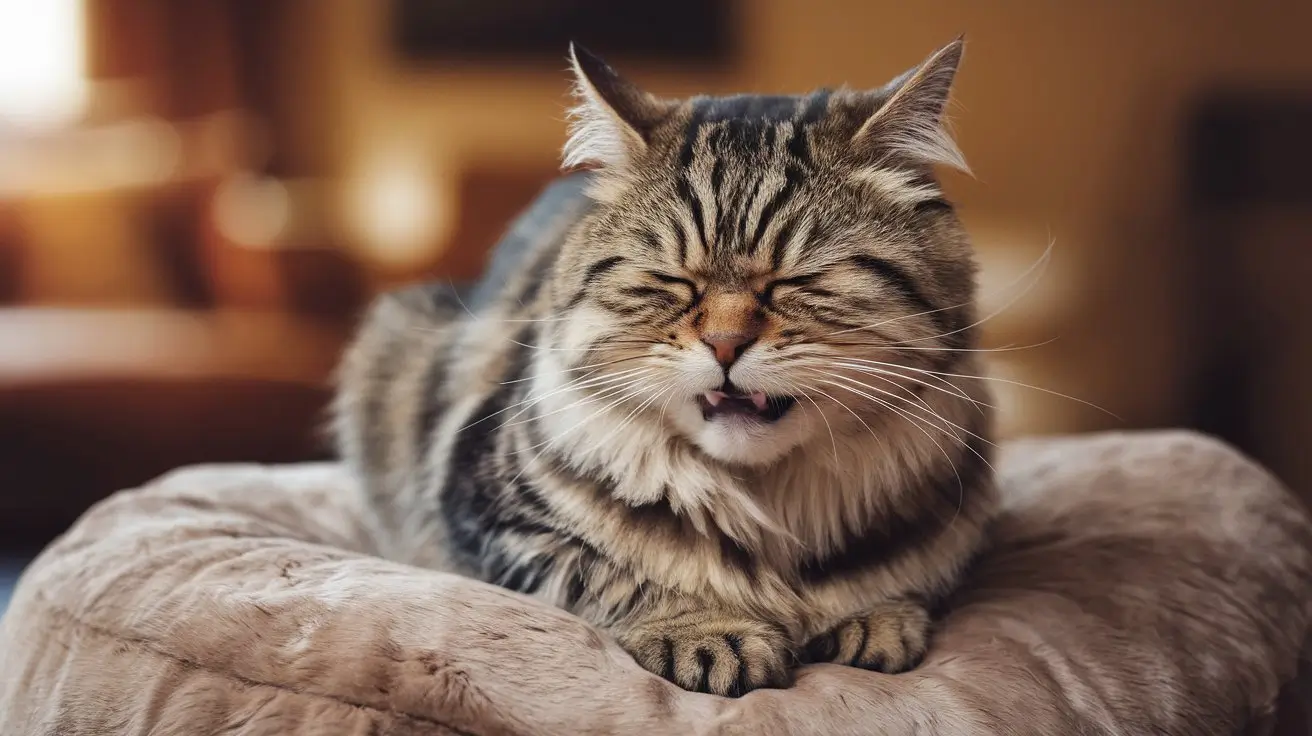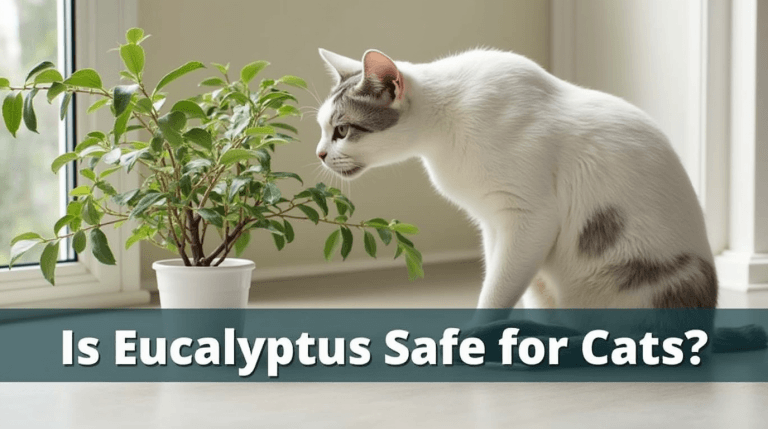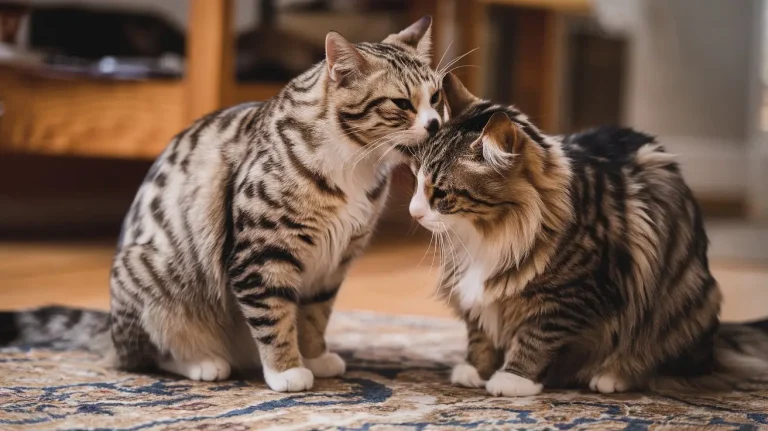Have you ever found yourself wondering, “Why is my cat sneezing?” It’s a question that many pet owners face at some point. Sneezing in cats can be both alarming and confusing, especially when it happens repeatedly or is accompanied by other symptoms. In this comprehensive guide, we’ll explore the possible causes behind your cat’s sneezing, explore when to seek professional help, and provide actionable tips for managing and preventing these episodes. By the end of this article, you’ll have a clearer understanding of what might be affecting your feline friend and how to ensure their well-being.
Table of Contents
The Basics – What Triggers Sneezing in Cats?
Sneezing is your cat’s natural way of clearing irritants or foreign particles from its nasal passages. While occasional sneezing is normal, persistent sneezing could indicate an underlying issue. Let’s break down the most common reasons why your cat might be sneezing.
Environmental Irritants – A Hidden Culprit
Your home environment plays a significant role in your cat’s respiratory health. Certain substances can irritate your cat’s sensitive nose, leading to frequent sneezing. These include:
- Household Cleaners: Strong-smelling chemicals used in cleaning products can aggravate your cat’s nasal passages. Opt for eco-friendly alternatives that are free of harsh scents.
- Perfumes and Air Fresheners: Fragrances from perfumes, candles, and air fresheners may seem pleasant to us but can overwhelm your cat’s delicate senses. Limit their use around your pet.
- Smoke: Whether it’s cigarette smoke or burning incense, airborne particles can cause irritation. Ensure proper ventilation in your living space.
- Dust: Dust accumulation in carpets, furniture, and bedding can trigger sneezing fits. Regular vacuuming and dusting will help minimize exposure.
By identifying and addressing these environmental factors, you can significantly reduce the likelihood of your cat sneezing unnecessarily.
Upper Respiratory Infections (URIs) – A Common Cause
One of the primary reasons for persistent sneezing in cats is upper respiratory infections. These viral or bacterial infections often spread quickly among cats, particularly in multi-cat households or shelters. Here’s what you need to know:
- Feline Herpesvirus: This virus is highly contagious and can lead to symptoms like sneezing, eye discharge, and fever. Once infected, cats may carry the virus for life, with flare-ups occurring during periods of stress.
- Calicivirus: Another common culprit, calicivirus causes similar symptoms and can also result in oral ulcers. Vaccinations can offer partial protection against this virus.
- Bordetella bronchiseptica: Though less common, this bacterium can cause severe respiratory issues, including sneezing and coughing.
Did you know? Studies show that approximately 80% of URI cases in cats are caused by viral infections. If your cat exhibits signs of an infection, such as lethargy or loss of appetite, consult your veterinarian promptly. Early intervention can prevent complications.
Dental Issues – An Overlooked Connection
Believe it or not, dental problems can contribute to sneezing in cats. The proximity of the teeth and nasal passages means that infections or abscesses in the mouth can affect the sinuses. Consider the following:
- Tooth Abscesses: Infected teeth can release pus and bacteria, which may travel to the nasal cavity, causing inflammation and sneezing.
- Gum Disease: Advanced periodontal disease can weaken the structures supporting the teeth, increasing the risk of sinus infections.
Regular dental check-ups are crucial for maintaining your cat’s overall health. Your veterinarian can identify potential issues before they escalate. Additionally, practicing good oral hygiene at home—such as brushing your cat’s teeth—can play a vital role in prevention.
Allergies – Could They Be the Reason?
Just like humans, cats can develop allergies to various substances. These allergic reactions can manifest as sneezing, itching, or skin rashes. Common allergens include:
- Pollen: Outdoor cats may be more prone to seasonal allergies triggered by grass, trees, or flowers.
- Mold Spores: Damp environments can harbor mold, which can irritate your cat’s respiratory system.
- Food Ingredients: Some cats are sensitive to specific proteins or additives in their diet. A trial elimination diet under veterinary supervision can help pinpoint food-related allergies.
If you suspect allergies, work closely with your vet to determine the exact trigger and implement appropriate management strategies.
When Do Cats Stop Growing? Understanding Your Cat’s Growth Stages
When Should You Worry About Your Cat’s Sneezing?
Not all sneezing requires immediate attention, but certain signs warrant a trip to the vet. Pay close attention if your cat displays any of the following symptoms:
Persistent Sneezing Lasting More Than Two Weeks
Occasional sneezing is usually harmless, but prolonged episodes could signal an ongoing issue that needs resolution.
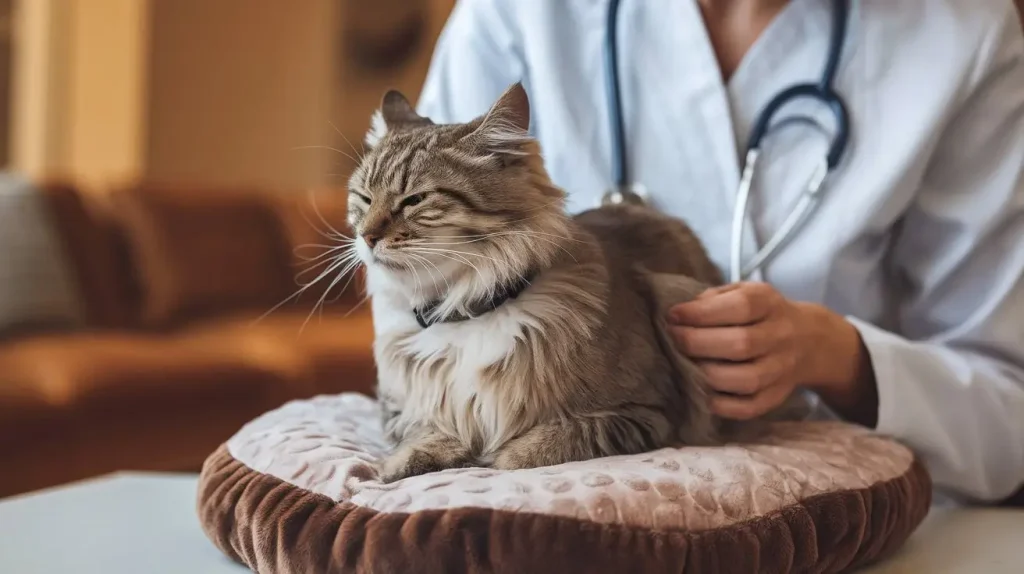
Discharge from Eyes or Nose
Clear discharge is typically less concerning than yellow or green mucus, which may indicate a bacterial infection.
Loss of Appetite, Lethargy, or Difficulty Breathing
These symptoms suggest a more serious condition requiring prompt medical evaluation.
Conditions That Require Urgent Care
In rare cases, sneezing could stem from conditions such as:
- Fungal Infections: Cryptococcus is a fungal organism that affects the nasal passages and can lead to chronic sneezing.
- Foreign Objects: Small objects lodged in the nasal cavity can cause irritation and persistent sneezing.
- Nasal Tumors or Polyps: Abnormal growths in the nasal passages may obstruct airflow and cause discomfort.
If your cat exhibits any of these symptoms, don’t delay seeking professional advice. Early diagnosis and treatment can make a significant difference in their recovery.
How Can You Help Relieve Your Cat’s Sneezing?
While some causes of sneezing require veterinary intervention, there are steps you can take to alleviate your cat’s discomfort and support their healing process.
Home Remedies and Preventive Measures
Implementing simple changes in your home can create a healthier environment for your cat:
- Keep living spaces clean and well-ventilated to minimize irritants.
- Use a humidifier during dry seasons to moisten the air and soothe irritated nasal passages.
- Provide fresh water and high-quality nutrition to boost your cat’s immune system.
Medications and Treatments
In cases where home remedies aren’t sufficient, your veterinarian may recommend medications tailored to your cat’s needs:
- Antibiotics: For bacterial infections, antibiotics prescribed by your vet can clear up the problem.
- Antivirals: In viral cases, antiviral drugs or supportive care may be necessary.
- Steroids: To reduce inflammation, corticosteroids may be used temporarily.
Always follow your vet’s instructions carefully when administering medication to avoid complications.
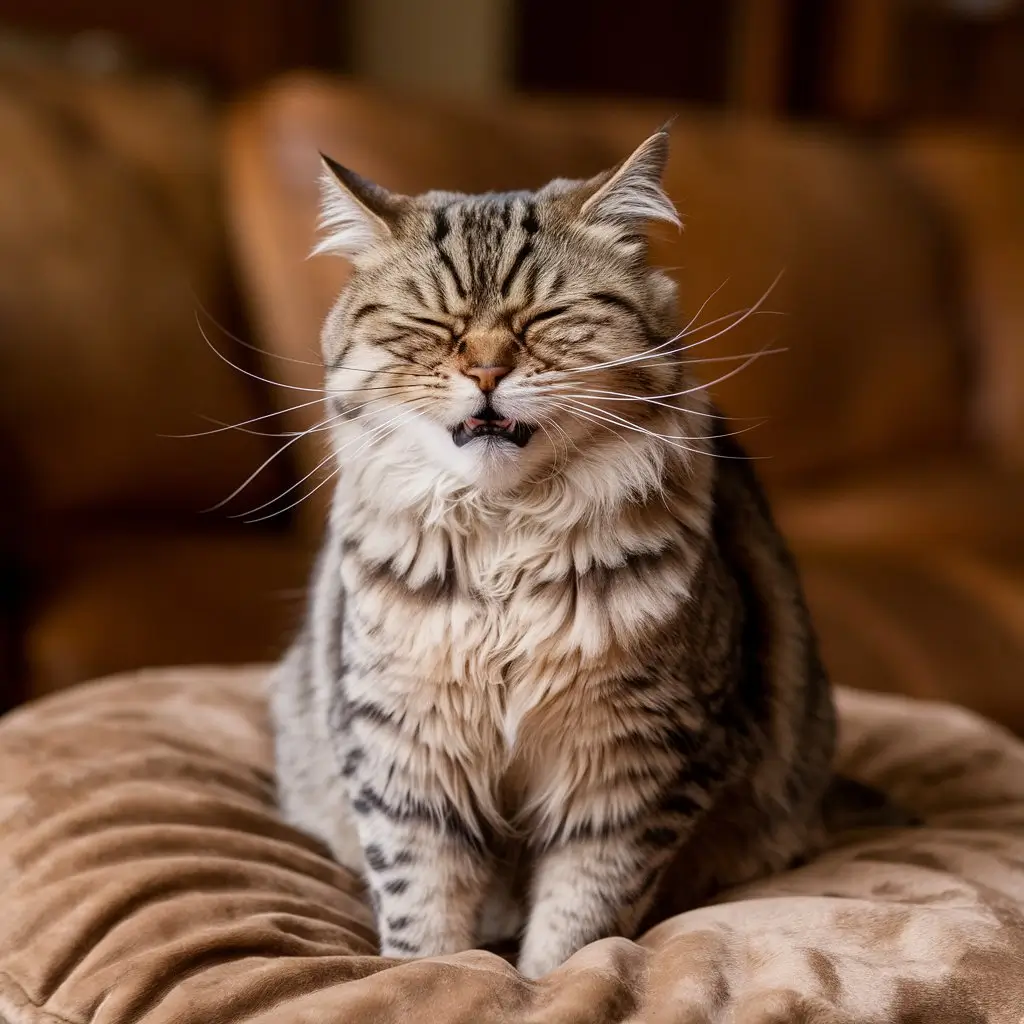
FAQs About Why Is My Cat Sneezing?
Here are answers to some frequently asked questions about cat sneezing:
Q1: Why is my cat sneezing all of a sudden?
A sudden onset of sneezing could be due to exposure to new irritants, a minor infection, or even a change in routine. Monitor your cat closely for additional symptoms.
Q2: Can sneezing in cats be contagious to humans?
Most causes of sneezing in cats are not transmissible to humans. However, zoonotic diseases, though rare, exist. Consult your vet if concerned.
Q3: Is it safe to give my cat human cold medicine?
Absolutely not! Many human medications are toxic to cats. Always rely on treatments recommended by your veterinarian.
Q4: Why is my cat sneezing and having watery eyes?
This combination often points to an upper respiratory infection or allergy. Seek veterinary guidance for accurate diagnosis and treatment.
Conclusion
Understanding why your cat is sneezing empowers you to take proactive measures to protect their health. From environmental adjustments to timely veterinary care, every step contributes to ensuring your feline companion remains happy and comfortable. Remember, while occasional sneezing is usually nothing to worry about, persistent or worsening symptoms demand professional attention.
Take action today by evaluating your cat’s surroundings, scheduling regular vet visits, and staying vigilant for signs of illness. Together, we can keep our beloved pets thriving.
Share your experiences or ask questions in the comments below! Have you encountered similar issues with your cat? What solutions worked best for you? Engaging with fellow pet owners fosters a community of knowledge and support. Don’t hesitate to reach out—we’re here to help!

